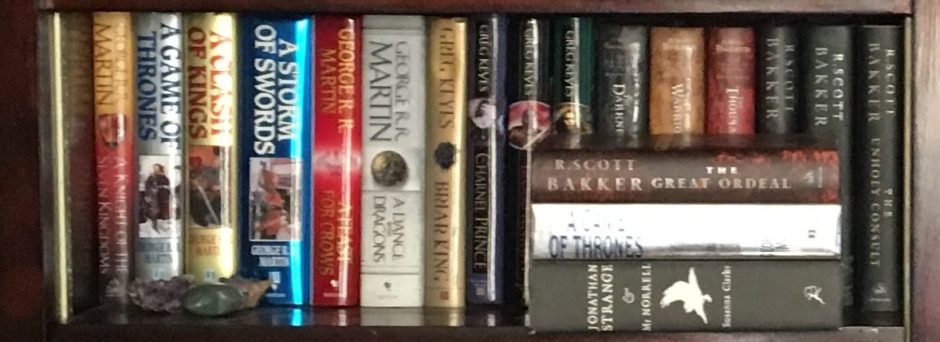
I mentioned this Netflix series – based on a book of the same name by Richard Morgan – in an earlier post. I’d watched the first few episodes and had really enjoyed them. I finished the final 3 episodes last night – full series consists of 10 episodes – and I wanted to post a quick follow up.
To begin with, I thought this was a brilliant book – disorienting – complex – compelling – definitely worth a reread or two. I might even put it on my Top 100 List. Unfortunately, many who feel that way about the book could find the series somewhat problematical due to its noticeable narrative departures. That’s likely going to stick in the craw of many readers and may very well lead some them to just dismiss the series.
Not so for me and I hope others will choose not to take a purist approach! I felt that this was superb television and Netflix deserves a lot of credit for bringing it to the small screen in such a compelling way. The rich visuals – the quality of the acting – the way a very complex story grows and develops over the course of 10 one hour episodes – the willingness to explore some fairly disorienting concepts – all I can say is kudos to Netflix. It was well enough done so that I was able to divorce myself from a book that I truly love and accept this version as an excellent adaptation. In fact, a few of the deviations became some of the things I liked most about the Series – Poe, the AI personality of the Ravel Hotel – the importance of Kristen Ortega and her family – the addition of Lizzie.
One quick thought relevant to both the book and the series – there are many things going on in this story – many complex questions posed by the availability of the cortical stack technology and it’s impact on society and humanity. The central issue around which most others revolve is summed up in Laurens Bancroft’s final line – the question “Have we lived too long?” It’s an acknowledgement of the fact that the practical immortality which the Methuselahs (Meths) have achieved – while it provides them with the power of Gods vis-a-vis the average citizen – it does not free them from the frailties and weaknesses of their less fortunate fellows. The freedom to act independent of consequences while alive and divorced from the potential for any judgement in the afterlife produces an over-class unsurprisingly devoid of any ethical, compassionate or noble element in their lives.
If there is a comparison that can be drawn to the current state of our society in this country, it would be posed by the question – “Have we become too wealthy?” The concentration of wealth in the U.S. has the potential – may already have – produced an over-class that are similarly freed from the painful considerations of the majority of citizens and similarly free from most of the consequences of their actions. The only constraint still existing for that small group of super-wealthy individuals – and it is a self-imposed constraint – is the potential for and fear of judgement in the afterlife.
If you haven’t read the book – I’d really encourage you to give the Series a try. Despite the liberties Netflix has taken, I think the Series very effectively represents the novel – no small task given the complexity of the story being told. For those who have read and loved the book, try to approach the Series with an open mind and accept it as a new version with some changes that you might eventually find yourself enjoying. I think you’ll be glad you did.
